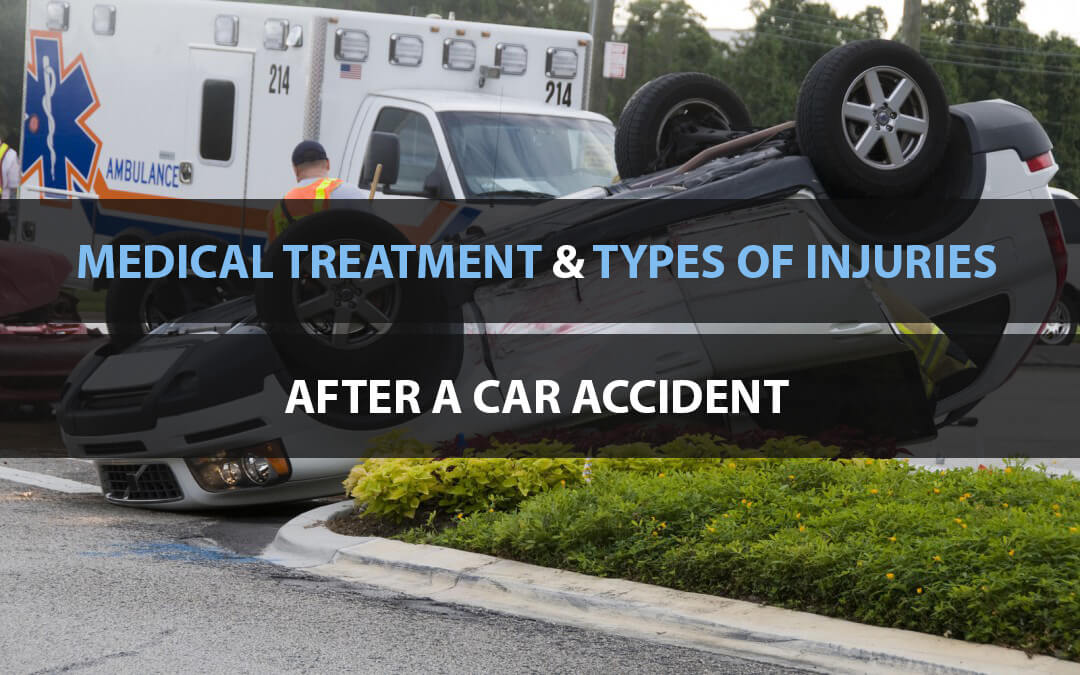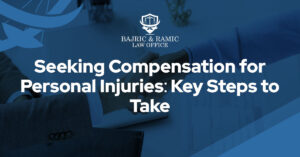Medical treatment at the scene
If you are bleeding or have an obvious injury, paramedics will assess your condition and, if needed, transport you to the hospital for treatment.
In many cases, however, the injuries are not as obvious.
The stress of the accident and adrenaline in your body immediately after the crash may “hide” some of your symptoms, leading you to believe you are not badly injured.
In addition, bruising and swelling can occur during the hours following the accident so you end up feeling worse later.
It is surprising how many people will refuse medical treatment at the scene of an accident and go home, only to end up at the emergency room a few hours later.
The reasons I have heard range from lack of health insurance and fear of medical bills to, “I thought it was just the shock and my pain would improve after a while.”
In most situations, the pain will increase in the hours or days following an accident.
The majority of medical professionals agree that most pain after an accident occurs 48-72 hours after the collision.
Read more about: The Accident Scene – What You Should and Shouldn’t Do
That’s right, two to three days after the actual accident.
In order to rule out more serious injuries, and decrease the pain and suffering after the collision, it is essential to immediately ask to be taken to the closest emergency room.
Seek medical attention
Another important reason to seek medical attention immediately following the accident is the fact that insurance companies will attempt to minimize your injuries because you failed to seek treatment.
They will argue, albeit wrongly, that your pain is not related to the accident at all but may be from a pre-existing condition or perhaps from something that happened after the accident.
Read more about: Who is Going to Pay for my Medical Bills?
Their logic is that people who are injured will seek medical care right away.
Therefore, since you did not seek medical care right away, you were not really injured.
As you can see, it does sound logical, but reality and human nature do not support this argument.
If you believe there is any chance you have suffered an injury, you will better support any future claims by immediately seeking medical care to document your complaints and injuries.
Types of Injuries
Most injuries from car crashes are fairly minor and include cuts, pulled muscles and bruising.
Broken bones in the form of simple fractures (not requiring surgery) are also common.
If your injury falls into a minor category, you will probably recover quickly and be able to get the at-fault party’s insurance company to pay for your medical bills and lost wages, if any.
Read more about: Who is Going to Pay for my Medical Bills?
More severe crash injuries include:
- Compound bone fractures requiring surgery to repair.
Serious fractures may be repaired with permanent pins or rods or may require replacement of the joint. In some cases, future surgery may be required to maintain the repair.
If your doctor anticipates this may be the case in your situation, you will want to document these future expenses and include them in any settlement demand. - Neck and back injuries are also common. The trauma of the crash may cause whiplash or spinal injury. In many cases, these injuries are soft tissue injuries and don’t show up on the initial x-rays. Further testing and treatment are often required.
- Concussions are also common and range from minor, where you may feel nauseous for a day or two and then recover, to traumatic brain injuries that result in permanent damage requiring long term rehabilitation.
- Internal damage may not appear immediately, so you may go home after the crash thinking you are fine only to have to go to the emergency room later that evening when your symptoms and pain worsen.
- Serious crashes may result in amputation or paralysis. These cases will always require long term care and rehabilitation.
More severe injuries may result in a longer recovery time and even permanent damage that impacts your ability to work and support your family. If you have a severe injury, you may wish to speak to an attorney.




